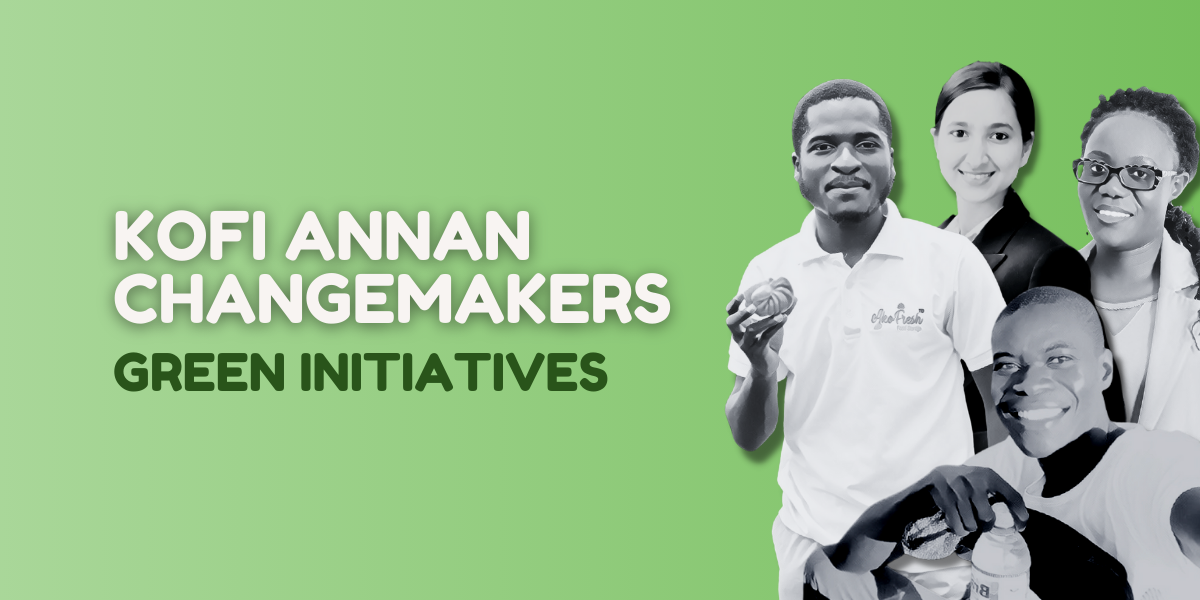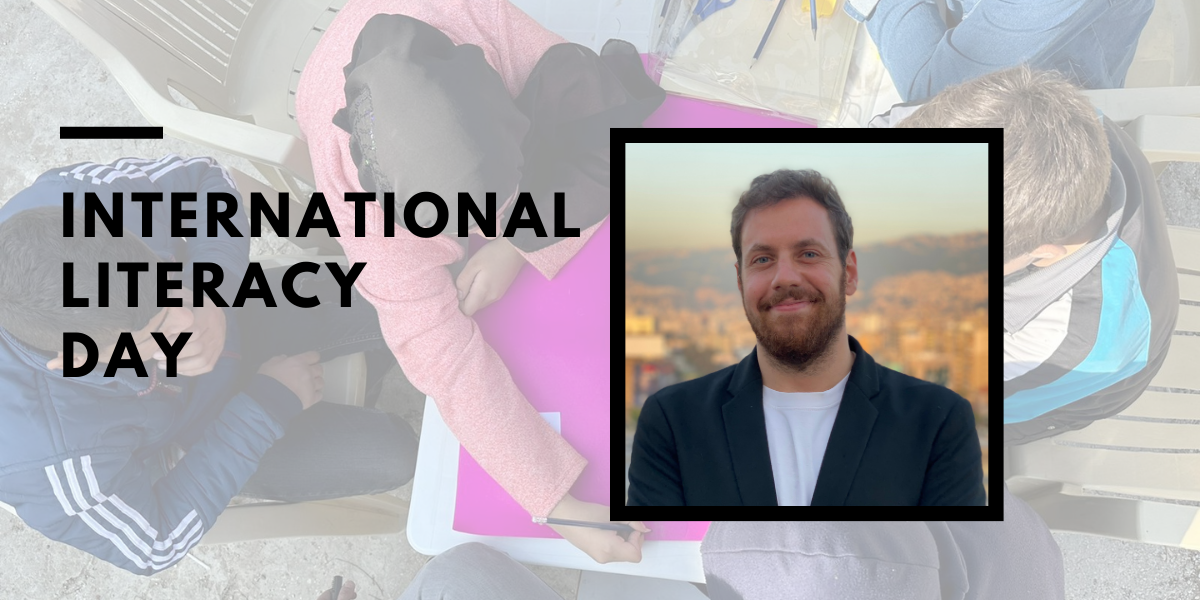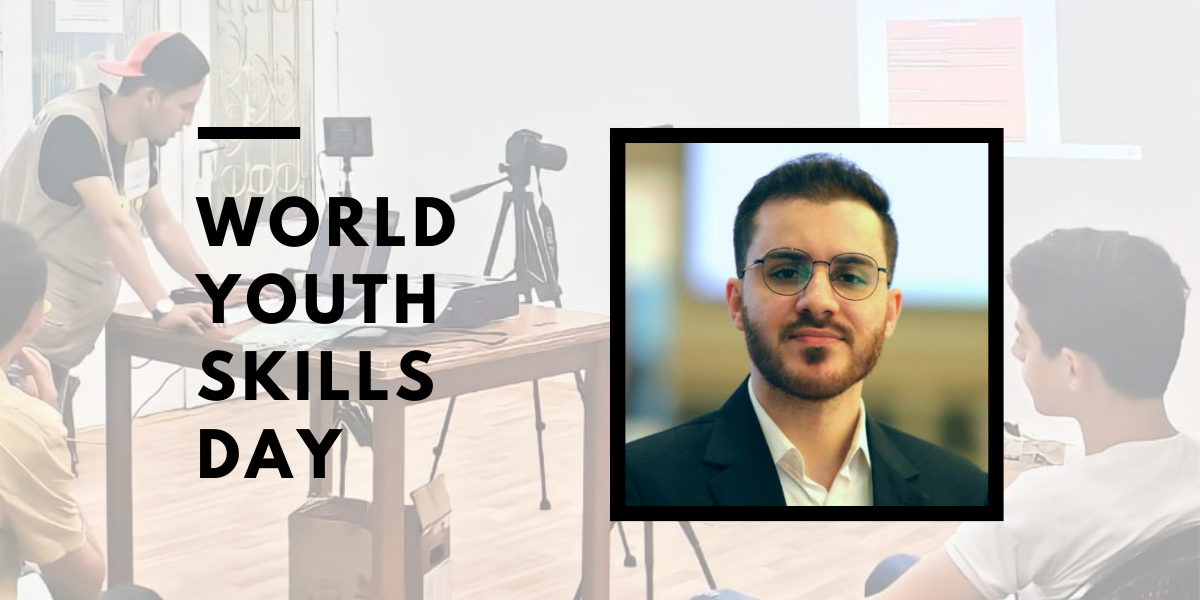Empowering girls in Nigeria: Introducing Sophiyat Sadiq
In honour of International Girls in ICT (Information and Communications Technology) Day today, April 28th, we are pleased to present Nigerian Sophiyat Sadiq, one of our 2021 Kofi Annan Changemakers.
International Girls in ICT Day is an annual celebration and global campaign to empower and encourage girls and young women to take up studies and careers in ICTs. Data from the UN indicates that only 3% of students joining information and communication technology (ICT) courses across the globe are women.
“To educate girls is to reduce poverty.” – Kofi Annan
In Nigeria, women make up half of the college-educated workforce, but only 11 per cent of the technology and engineering workforce are women. Technology expert and founder of She Code Africa, Dr Adefunke Ekine, decried the low enrolment of young girls compared with their male counterparts, attributing the development to their lack of having direct access to digital tools such as video and resources.
Through her organisation Auxilium, Sophiyat fights for digital inclusion for girls and women in Nigeria and beyond. Auxilium’s vision is a world where young girls can fully participate in the digital economy regardless of their socio-economic backgrounds, gender stereotypes and barriers. Importantly, Sophiyat wants to ensure that young girls from disadvantaged backgrounds in Nigeria are not entirely sidelined in the workforce.
![]() Sophiyat’s journey
Sophiyat’s journey
Sophiyat’s journey into ICT and STEM began at 13 when she attended a technology summer camp. The camp became a defining moment in her life: it drove her to see technology in a new light. She realised that ICT was more than social media and became aware that other girls in her community suffered from the same misconceptions about technology.
At 14, Sophiyat started volunteering with the Women Technology Empowerment Centre. She later joined Girl hub Africa (the largest all-female volunteers’ network in Africa) and African Women in Tech+ Business. She also became a member of ITU’s Generation Connect as one of their Youth Envoys in Africa.
In 2020, at the height of the COVID-19 pandemic, Sophiyat volunteered with the Give Back Group in Lagos. She saw an opportunity to introduce STEM to young girls in an inclusive way, which is how Auxilium was born.
Making STEM more accessible
Auxilium teaches tech skills to young girls between 12 and 20 years of age from low-income communities around Lagos.
Auxilium is built on three pillars; Education, Advocacy, and Policy Reform.
- Through education, Auxilium ensures that young girls and teachers can access the quality information and resources to thrive in today’s digital world.
- Through advocacy, it raises awareness about the harsh realities young girls in developing communities face in accessing education while also ensuring that parents, especially mothers, understand the importance of STEM education for their daughters.
- Through policy reform, it aims to reform the current curriculum in Nigeria to guarantee that everyone has access to quality STEM education.
Sophiyat runs Auxilium with four volunteers. Together they break down STEM curriculums into smaller, digestible content to make the subjects easier to understand and learn. They aim to increase the number of career choices for girls and enable them to become active members of their communities.
“We want girls to have a wider range of choices for their future,” explains Sophiyat. “We want them to see themselves as active members of society in multiple ways; as engineers and computer scientists as well as the traditional roles of wife and mother. As individuals who know how to bring solutions to challenges their communities face.”
Introducing STEM to more young girls in Nigeria
Sophiyat with some of the students during a STEMINST camp. Photo credit: Auxilium
Auxilium runs two-week ‘STEMINIST’ camps for girls, introducing STEM subjects to students through creative, hands-on teaching.
“We don’t just define genetics, engineering, chemistry, etc. We provide resources and experienced teachers with different teaching styles. The girls get to make items throughout the camp, including torchlights, solar panels and hydraulics.”
Using the seed grant from the 2021 Changemaker programme, Sophiyat plans to organise another 2-week ‘STEMINIST’ camp. Throughout the two weeks, 25 young girls will have the opportunity to learn STEM subjects and broader topics, including art, sustainable development goals, mental health and confidence-building. Female mentors will coach the girls from different ethnic and religious backgrounds to help boost their confidence.
Some of the items made during the STEMINIST camp
Changing the African tech space
Sophiyat has so far helped over 400 girls in Nigeria. She is working to demystify STEM careers for girls, often seen as an imported and unrealistic aspiration.
Africa has the youngest, fastest-growing population globally, so it is vital to promote STEM education on the continent. If current trends continue, by 2050, some one-third of Africa’s one billion young people will lack basic proficiency in math, reading, and STEM subjects.
It is even more important for girls to be included in Africa’s development to ensure that by 2050, a sector as vital as technology is gender-balanced.
When women and girls gain meaningful access to STEM education, the whole of society benefits.



